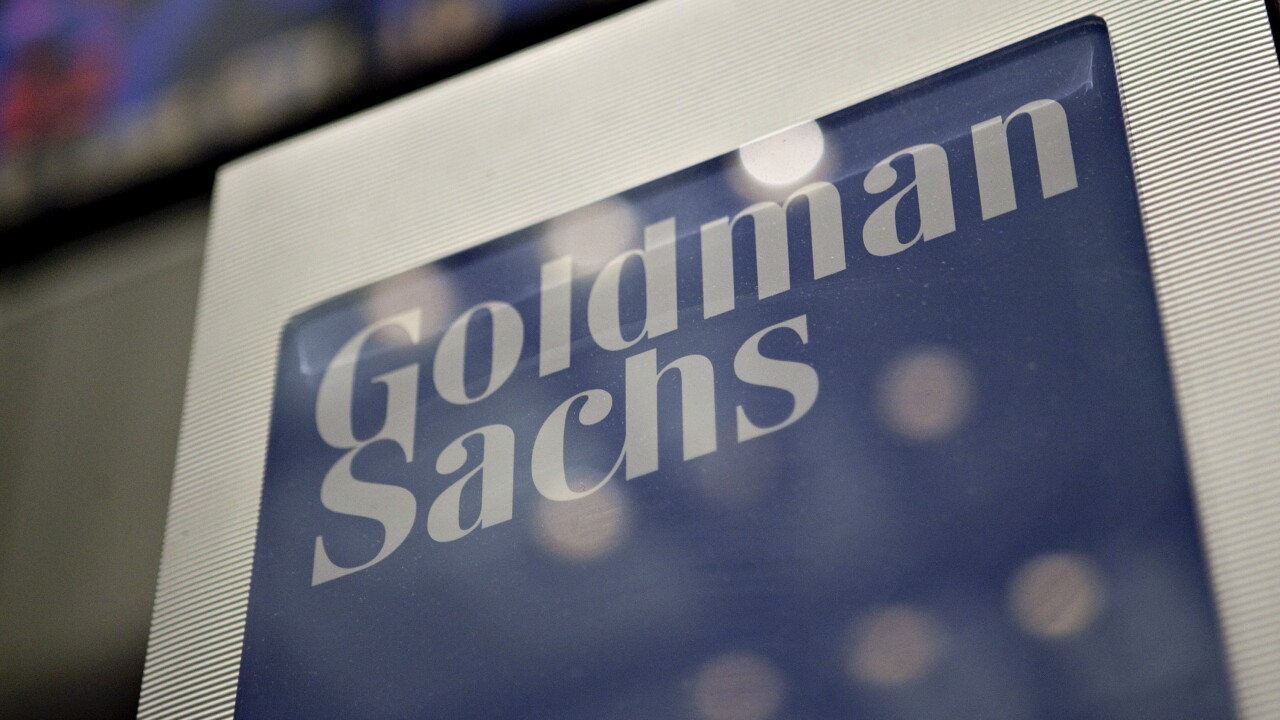The regulators charged with implementing the Volcker Rule have posed 1,300 questions to the public, but on Wednesday, at a House subcommittee hearing, they fielded one query they seemingly hadn't considered.
Rep. Michael Grimm (R-N.Y.) described a scenario in which a foreign firm with no U.S. operations sells a security, as a part of a proprietary trading strategy, to an American firm.
"Does that fall under the purview of U.S. regulators? Is that subject to the Volcker Rule?" Grimm asked during a House hearing.
Following a pause and some requests for clarification, Securities and Exchange Commission Chairman Mary Schapiro responded, "I believe-and I'd like to confirm this for you-that if the foreign banking entity sells to a U.S. customer, they lose the exemption from the Volcker Rule."
The brief confusion underscored the massive complexity of the Volcker Rule--an effort, conceived by former Federal Reserve Board Chairman Paul Volcker--to prevent banks from making risky bets that are ultimately backed by taxpayers.
Last week, Investment Company Institute President and CEO Paul Schott Stevens issued a statement on the impact of the rule-on markets, businesses, investors and job creation: "The current proposal to implement the Volcker Rule raises deep concerns for the U.S. registered fund industry.
"The proposal is overly broad and could impede the organization, sponsorship and normal activities of registered funds, contrary to Congressional intent. Moreover, it could harm the financial markets and otherwise limit, or make more expensive, investment opportunities for registered funds and their shareholders."
Last year, the Fed and other regulators released a nearly 300-page draft proposal for implementing the Volcker Rule, which contained hundreds of questions for public comment. The comment period was recently extended to Feb. 13, and at Wednesday's hearing, regulators made clear that they don't believe they have all the answers regarding how the Volcker Rule should be implemented.
Much of Wednesday's House hearing resembled a replay of the legislative debate over the Volcker Rule in 2010.
Republican opponents of the plan expressed fears that the measure will restrict liquidity in financial markets and ultimately will hurt economic growth.
"There has to be capital for investment. And I believe this will restrict capital," said House Financial Services Committee Chairman Spencer Bachus (R-Ala.).
But the committee's top Democrat, Rep. Barney Frank, challenged the idea that greater liquidity is always the most important consideration.
Beyond that, Tarullo said that the impact on liquidity would depend in part on how many unregulated firms, such as hedge funds, step into the void left by banks that have been doing proprietary trading.
"I think at least one firm has already stated publicly that they see enormous opportunities here," Tarullo said.
Walsh said that some of the proprietary trading business in U.S. banks may also migrate overseas. Foreign banks that have U.S. banking operations are subject to the Volcker Rule, but foreign banks that operate exclusively overseas generally are not.
"Hedge funds and others may take up that business. Some of it may go to foreign firms," Walsh said. "So we are creating some such limitations, and that business will presumably migrate elsewhere."
In that context, House Republicans reprised their argument that the Volcker Rule will place the United States at a disadvantage internationally.
"In the international context, Volcker was supposed to be one of our 'Field of Dreams' regulations. If we build it, they will come," said Rep. Francisco Canseco (R-Texas). "Yet no other country has adopted anything similar to the Volcker rule."
Much of the testimony by regulators focused on their uncertainty over where to draw the line between what is permissible-including market-making and hedging-and what is prohibited.
They repeatedly emphasized that they are seeking public comment in order to get a better grasp on that issue.
Tarullo testified that proprietary trading and market-making activities can be indistinguishable from each other based solely on the features of the trade.
The Volcker Rule attempts to distinguish between the two based on whether the bank intends to resell soon and to earn a profit from short-term price fluctuations.
The regulators have proposed a framework that sets forth factors that the regulators see as differentiating trades that are prohibited from those that are permitted, and it requires banks to establish a compliance program in accordance with those factors. "There is no question that this is not a simple test," Tarullo said.
Republicans pressed the regulators to go back to the drawing board in implementing the Volcker Rule and to push back the date, currently scheduled for July 21, when the measure becomes effective. But they did not get any commitment from agency officials.
Frank, one of the main authors of the Dodd-Frank Act, pushed back forcefully against the idea that more time is necessary to consider the impact of the Volcker Rule.
"I must say that it does seem to me that delay here is a stalking horse for opposition in the case of most people," Frank said. "And they blame a lot on uncertainty. So what are they asking for now? More uncertainty."
Kevin Wack covers Capitol Hill for American Banker.





